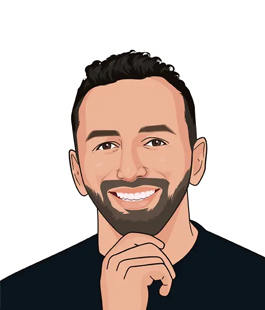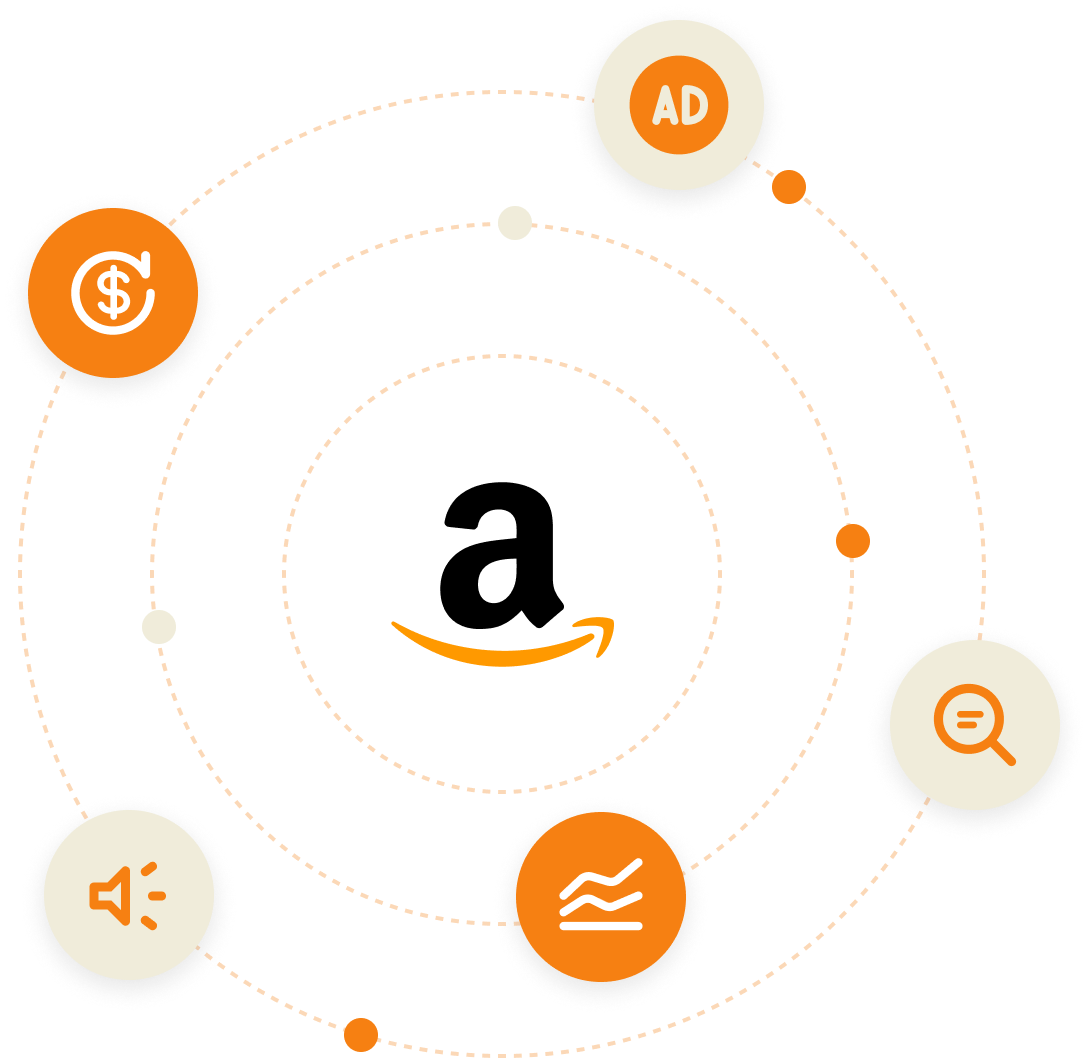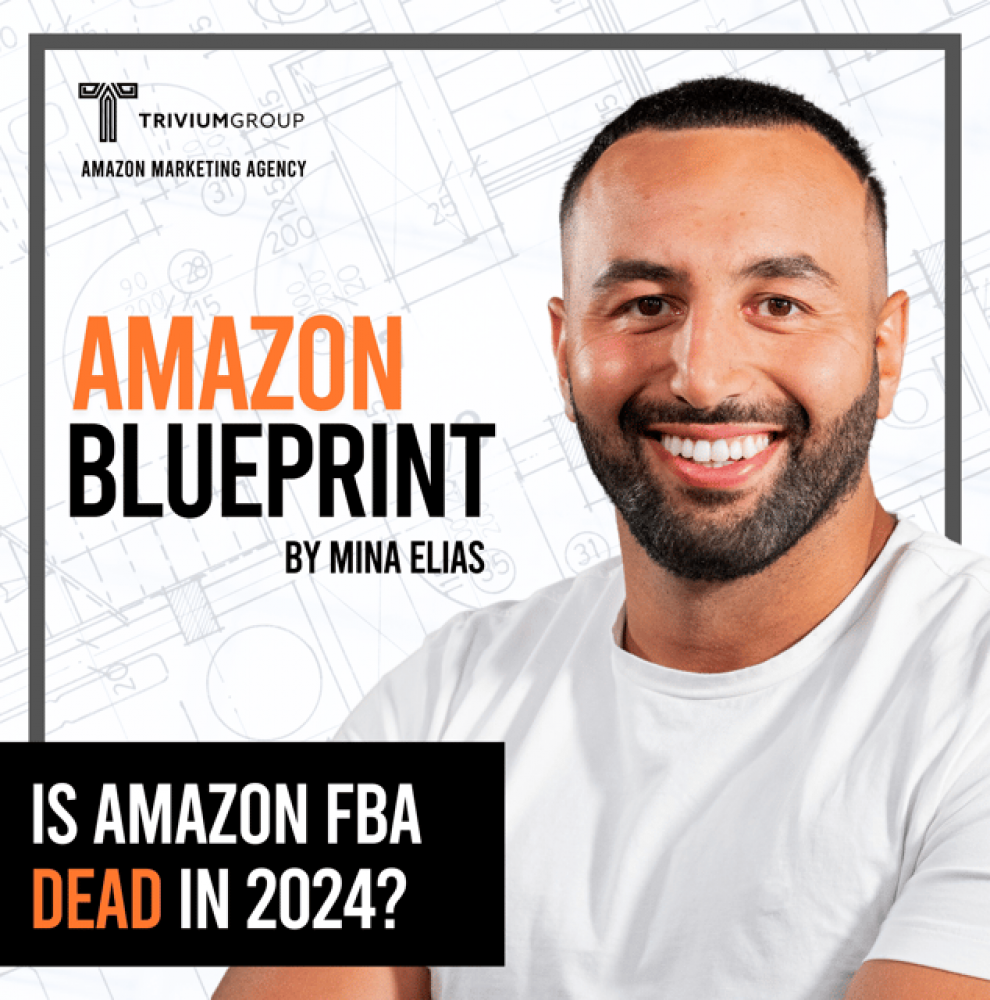Success on Amazon Podcasts > Is Amazon FBA Dead in 2024?
In this podcast, I dive into the viability of starting an Amazon FBA business despite market saturation and increased competition.
By the end of this podcast you will have a holistic understanding of the challenges Amazon FBA sellers face, including market saturation, increased competition from big brands, rising Amazon PPC costs, and a higher barrier to entry due to a stringent seller verification processes.
But it’s not all doom and gloom, I also share the potential for profitability, by citing real-life data of a high percentage of FBA sellers turning a profit within the first year.
Amazon FBA success is possible with meticulous niche selection, product validation, optimized listings, and leveraging data-driven strategies as the key factors for success on Amazon.
Get you free full account audit and personalized strategy for your business – http://tinyurl.com/7nh65cep
Host

Mina Elias
Mina Elias
Meet Mina, a dynamic entrepreneur, chemical engineer turned Amazon expert, and founder of Trivium Group, an Amazon Growth Agency. Leveraging his success in scaling the supplement brand MMA Nutrition from its inception to a seven-figure enterprise, Mina has become a thought leader with a robust presence in the e-commerce domain. His journey includes speaking engagements on major Amazon industry stages, consulting over 400 brands, and appearances on 300+ Amazon and e-commerce podcasts, showcasing his expertise. As a continuous leader and innovator in the Amazon space, Mina’s entrepreneurial spirit and strategic insights drive success in the ever-evolving e-commerce landscape.
EPISODE TRANSCRIPT
Welcome back to the Amazon Blueprint podcast. Is Amazon FBA dead? Has the gold rush already passed or is it still possible to make a decent profit in today’s saturated market? And with all of this talk about market saturation and increased competition, you probably think that the Amazon FBA ship has already sailed. But what I’m about to show you might change your mind. Starting an Amazon FBA business has become an incredibly popular thing for entrepreneurs to do.
With all of these coaches and courses coming out, there’s thousands and thousands of sellers starting every single month. But there’s a few good reasons why some people argue that starting an Amazon FBA business isn’t the smartest move. And I’ll share with you some of those reasons. Number one, market saturation. There are a lot of competitors going into every single niche on Amazon.
And what’s even worse is a lot of them are Chinese manufacturers. So the same manufacturer that is manufacturing your products is now going direct to consumer. They are launching their own Amazon stores and they’re competing against you. And there’s no way that you’re going to win on price. Number two, increased competition. Not only are all of these people that are taking courses starting FBA businesses, but on top of that, after Covid hit, you guys don’t understand the amount of brands coming onto Amazon. Before COVID hit brands would come and consult with me and ask if Amazon is the right fit for them. And a lot of them all of the time said, no, Amazon’s not the right move. They think it’s going to depreciate their value and things like that, like make their brand not look as premium. But after Covid hit, literally all of those same people hit me up to help them get on Amazon.
And I’m not talking about regular brands. I’m talking about massive, massive brands, 100 million dollar brands. There’s a lot of PE and VC backed brands that are all coming in. All of these massive retail brands are also coming into Amazon. So competition is getting fiercer.
And all of these people have a lot more money than their usual seller. Number three, the rising cost of Amazon PPC and the increased complexity. Guys, when I started back in 2018, Amazon PPC was way simpler than it is now. Now it’s incredibly complex. And not only is it complex, but you have to be super fucking tight with your PPC because you can’t afford to waste money on any keyword. So you have to have a really good system, you have to have sophistication, you have to be able to use the platform and on top of all of that, cpcs are going up because there’s more and more people biding and more people paying way more money to be on top of the search. Number four, a higher barrier to entry. Amazon is making it more and more difficult for sellers to come onto Amazon. And honestly, this is for a good reason, because everyone and anyone was coming onto Amazon and they were polluting the marketplace. They were bad sellers. They don’t belong there. So Amazon is making it more and more difficult. Now, that is good news and bad news for us. Good news is keep out all of the riffraff. But bad news is it makes it harder for us to get started.
Now there’s a lot more seller verification. They actually have to send a postcard, like a mailcard to your house or to your office so that you can get it. And you could put that code in the computer to validate that you actually have a real location. And not only that, you also have to do a Zoom call with them. They have to validate who you are. You have to show your driver’s license right on the call. They’re now asking for a lot more invoices. Certificate of analysis. They’re asking for real pick pictures and real images of the product. And you need really good photographs for you to actually get listed on Amazon.
And honestly, there’s a lot of other compliance stuff I’m not even mentioning, like insurance and other things like that. Number five, customer loyalty. A lot of the shoppers on Amazon are very loyal to the brands that they’ve been shopping with and that they trust. So new sellers have to start from scratch and they have to earn that trust and claw their way up until shoppers actually trust them. And in this case, reviews are more and more important.
And usually shoppers are not buying products with low reviews. Now that the average review is 10,000, 15,000 reviews, you have to have at least 500 reviews to kind of be considered as a decent product. All right, so we covered some of the negatives. Now let’s talk about some reasons why you should start an Amazon FBA business versus a traditional business. So there is a software company called Jungle Scout, and they surveyed thousands of sellers to ask them how long it took for them to get profitable on Amazon.
And out of the thousands of sellers that they surveyed, 68% of them turned a profit in the first year. That’s insane. Let me break that down further. 15% of sellers made a profit in the first three months. 25% of sellers made a profit in the first three to six months. 28% of those sellers made a profit between six months and one year, and 14 more percent made a profit between one and two years. Now guys, on the other hand, let me give you some stats on traditional businesses. 90% of traditional startups fail in the first year. Fail, completely fail, shut down. They don’t go on to the second year.
90%. And only 40% of those startups ever turn a profit. Ever. I’m not saying the first year, I’m saying ever. And the ones that do turn a profit, it takes an average of three to four years for them to turn a profit. Compare that with an Amazon FBA business, guys, that is literally insane. So unlike traditional businesses that take forever to turn a profit, if ever, Amazon FBA businesses are incredibly profitable and there’s a very high chance for you to become profitable in the first year. Alright? So the big question is, how do you succeed in such a competitive landscape on Amazon? So let me break down some strategies and tips that’s helped me become successful and many others like me become successful on Amazon.
First of all, niche down. You want to find a sub niche of a sub niche, something very, very specific that you can make a significant impact in. Something where you can create a solution to a problem that’s better than everyone else’s solution. And usually I like to look at myself as my own target audience. So for example, when I created MMA nutrition, I was an MMA fighter.
I was taking electrolytes, but I was on keto, so I wanted keto electrolytes. And nothing on the market had no sugar. This is back in 2018, literally nothing on the market had no sugar. They all had sugar, because sugar helps absorb electrolytes. But what a lot of brands didn’t explore is amino acid. It’s also helped with absorption. So I could create a keto electrolyte product, one with electrolytes and no sugar, with just aminos, and I would have the same benefits and I could create a solution to a problem that’s better than everyone else. It was almost a blue ocean, right? Because everyone had sugar, and I was the only one that didn’t next validate the demand of that product. So make sure that there’s enough search volume, people are looking for that product.
And then when you type in that keyword and you look at the competitors, make sure that they’re making decent revenue. So the app average revenue shouldn’t be 15,000 a month, it should be 100, 100 and 5200, because that means there’s a lot of demand. Also, look at keyword trends. Both on Google and on Amazon, make sure that it’s trending up, or at least flat, but it’s not trending down. All right.
And once you have a product and a niche, make sure that you have an optimized and perfect listing. From day one. Your listing should be the best out there. So you should be able to go and look at every single competitor’s listings. And when you build your listing, make it way better than everyone else. Literally. It’s so easy to get better images, better brand story, better a plus content, better SEO, better everything. So you don’t really have an excuse. And after an optimized listing, you need to master the honeymoon phase. This is the most critical period of your product launch on Amazon.
This is the first 30 to 45 days when you launch a product. Amazon doesn’t know anything about you. It gives you an unfair advantage on the market. So you want to sell as many units as possible. Because once you build that momentum, your organic rank is going to go up and you’re going to stay up there the second that you run out of stock.
Or if you start slow, you’re never going to get up to the top. And along with the honeymoon phase, you also have to focus on reviews. Reviews matter more than anything else. If there’s one thing that I would advise you guys to do is go look at all the products, all the very successful products. How many reviews do they have? You think they have hundreds of thousands if not millions of dollars in sales every single month because they have a low amount of reviews or a high amount of reviews. Reviews matter so much on Amazon. I’ve seen so many shitty products make it to the top just because they have so many reviews. And also you have to utilize Amazon PPC wisely. You have to be super, super lean.
You have to have a system. You cannot afford to let keywords spend money, not make sales. You can’t even afford to have a half baked plan because it’s incredibly difficult and competitive on Amazon PPC. So you have to stay sharp. And finally, guys, leveraging data and making data driven decisions, this is so critical.
So many people overlook this step. They launch on Amazon. They’re looking at campaign manager, they’re looking at business reports. They don’t have a good structure. They don’t have data that tells them the story. That helps them take action in a very structured and optimized way. So what you want to do is make sure you’re gathering all the data, displaying it in front of you in a very easy to understand format, and taking decisions based on that data. And if you feel like you’re unable to make decisions quickly enough, you probably need better data or better data presentation. And guys, as you navigate through those strategies, the right tools can make all of the difference. And that’s why I created the Amazon growth toolbox, which is basically a database of every single macro, every single sheet, every single template, every single guide, every single resource ever that I’ve ever come up with.
Five years of experience distilled into this one database, everything I’ve made for my team, for my own brands, for clients brands, everything that you can think of, all in one place. And I’m literally giving lifetime free access and it stays up to date. So anytime I create any new tools or resources, they all get put back into the Amazon growth toolbox. All right, guys, so is Amazon FBA dead or is it still worth it? I think it’s 100% worth it.
It is still alive and growing and thriving, and there is room for you. Just, you have to be competitive. You have to go in there with the willingness to adapt and to overcome anything. And if you do, you will succeed on Amazon. And guys, Amazon has created an insane life for me. If tomorrow trivium completely went away, all of my other businesses went away, and all I had was MMA nutrition, I could literally retire and live forever. I can travel, I can do whatever I want. I can go to Italy, I can go to France, I can go anywhere. Literally all I have to do is check my Amazon PPC campaign, stay in stock, get some reviews. It’s pretty much passive income. I can have one employee work on this. So I think Amazon is an incredible opportunity. If you take the time to learn and if you need.
Are You Ready to Experience Exponential Growth?
Get your hands on a free Amazon video audit, so you can make data-driven decisions and maximize your ROI.

Are You Ready to Experience Exponential Growth?
Get your hands on a free Amazon video audit, so you can make data-driven decisions and maximize your ROI.
